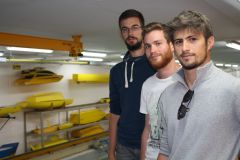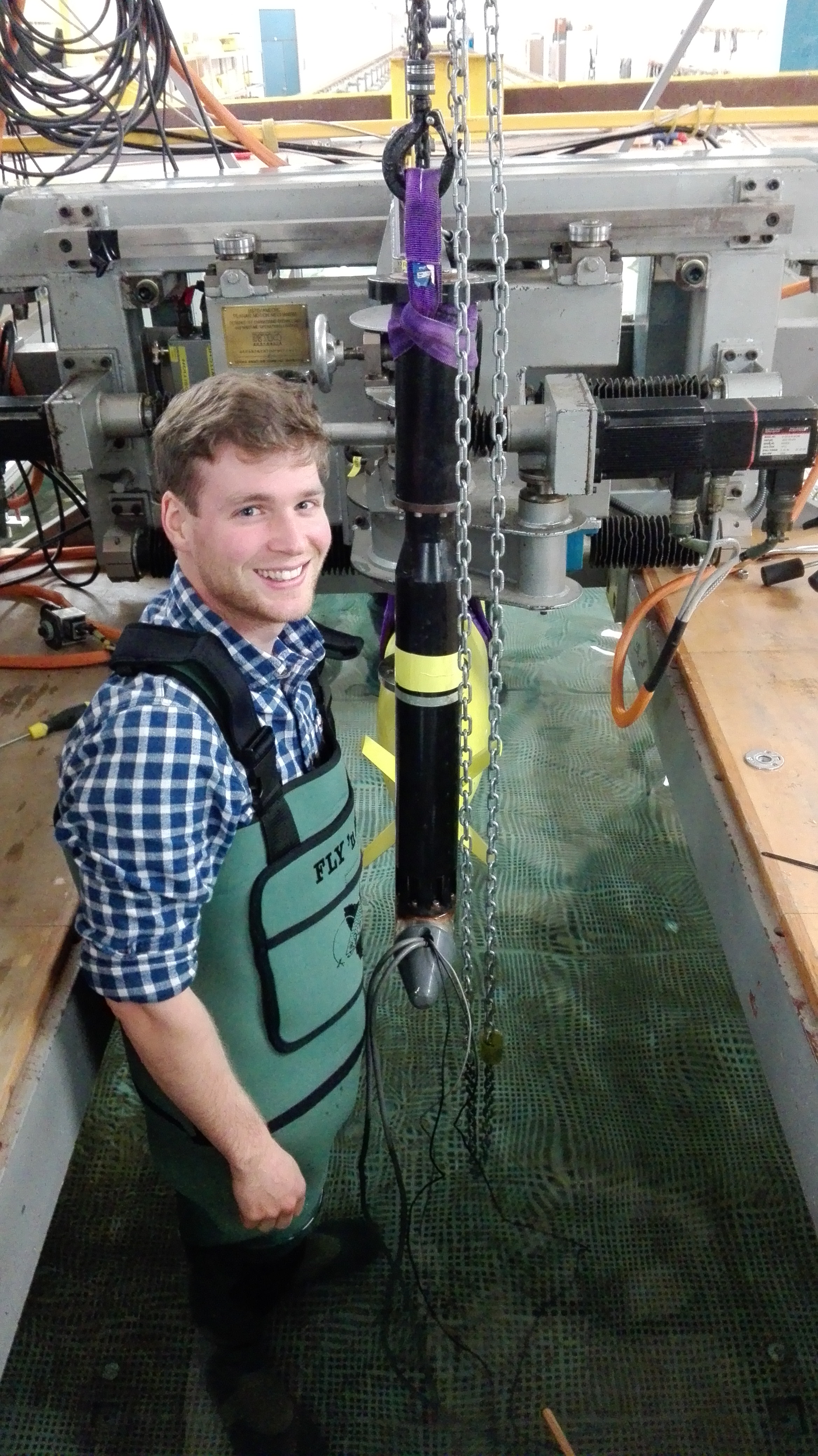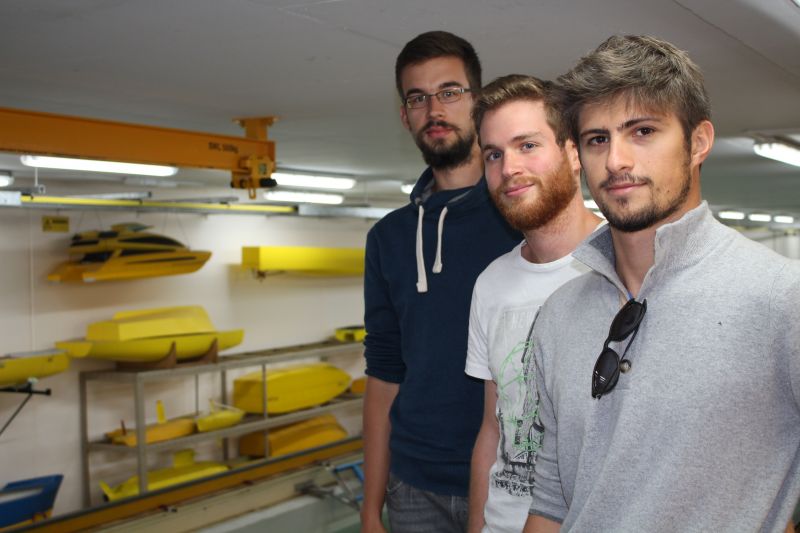
Students travel over 16,000 kilometres to get knee-deep in hydrodynamic research at the Australian Maritime College.
AMC’s towing tank facility has had a distinctly European feel to it in recent months, playing host to three students from France and Germany who have been knee-deep — at times literally — in research into the performance of underwater vehicles and catamarans.
Paul Schnabel from the University of Rostock, Germany, and Guillaume Payen and Guillaume Dumarest from ENSTA-Bretagne, France, have travelled over 16,000 km to spend time at AMC as part of their Naval Architecture Master’s degrees.
Their dedication has seen them not just traverse the globe, but also brave cold water to test their scale models of vessels in AMC’s towing tank, a 100 metre long facility that measures the resistance of objects in moving water.
“I really enjoy the practical nature of research in the towing tank,” explains Guillaume P, who – fittingly – is pictured in the tank in the image below.
Access to such a big towing tank is great for my research.
“Access to such a big towing tank is great for my research adds Paul, who’s at AMC for six months working to develop guidelines for the use of turbulence simulators with catamarans.
adds Paul, who’s at AMC for six months working to develop guidelines for the use of turbulence simulators with catamarans.
“These guidelines will help improve the quality of experiments that measure drag on surface-piercing catamarans,” explains Paul. “Although my research is a small contribution, the guidelines will mean that tests can be carried out more accurately. One of the main impacts of this is the possibility to build more fuel efficient catamarans.”
Guillaume P and Guillaume D are on eleven-month-long research internships investigating how the size of an underwater vehicle affects its ability to manoeuvre. Guillaume D explains why it’s an area of interest to underwater vehicle designers and manufacturers.
“Research in this area helps us better understand some of the phenomena that can impact the performance of underwater vehicles – for example the creation of some vortices (whirling masses of water) around the hull that could reduce manoeuvrability.
“Understanding the origins of these phenomena, and being better able to predict them, will allow architecture improvements.”
All three students have used the towing tank to carry out the experimental stage of their research, testing a model scale catamaran and underwater vehicle over the course of about a month.
The model testing completed, they moved to computer-based simulation, using Computational Fluid Dynamics (CFD), and validated the results using their towing tank work.
CFD as a computing science is perpetually improving, thanks to dramatic increases in computing power.
“CFD as a computing science is perpetually improving, thanks to dramatic increases in computing power. This lets us conduct previously impossible calculations and model interactions more accurately than ever before,” Guillaume D said.
The European trio are keen to convey how much they’ve enjoyed their Tassie experience outside the confines of the towing tank.
“Tasmania is awesome,” they respond in unison.
“We’re really happy to be here. As well as good experience for our careers and great support from supervisors, we’ve enjoyed learning about a new culture and meeting new people,” Guillaume D adds.
“We all really like nature and bush-walking; just last weekend we did three days of bushwalking at the Three Capes track on the Tasman Peninsula, where we saw dolphins and seals.”
Looking to the future, all three are interested in working on tackling similar challenges for industry; Paul with a focus on numerical modelling, and Guillaume P and Guillaume D in the renewable energy field.
“My interest is in the more practical side of hydrodynamics, and I’d love to work with something like sea-cleaning boats that remove plastic from the ocean,” says Guillaume D.
AMC researcher Dr Zhi Leong has been working closely with the students since their arrival. He says that their time at AMC has brought benefits beyond advancing their individual research projects.
“Paul, Guillaume P and Guillaume D have such strong engineering skill-sets; there is no question that they have made a great contribution to AMC’s research in the areas of CFD and experimental modelling.
“Thanks to them, we are well placed to deepen our partnerships with the University of Rostock and ENSTA-Bretagne. But, more than this, the diversity and cultural exchange they have brought has enhanced the team and has strengthened our international outlook — something that will be invaluable in helping create new global collaborations.”
Published on: 07 Mar 2017
